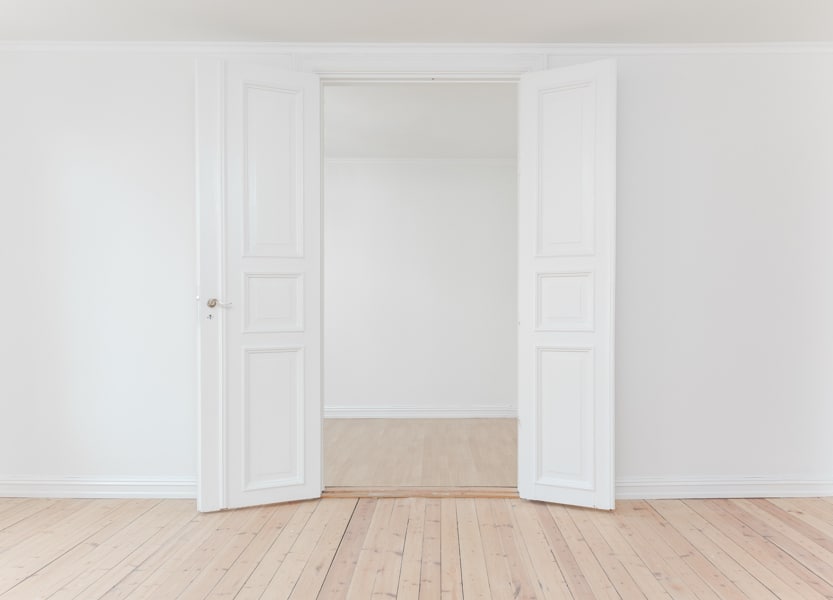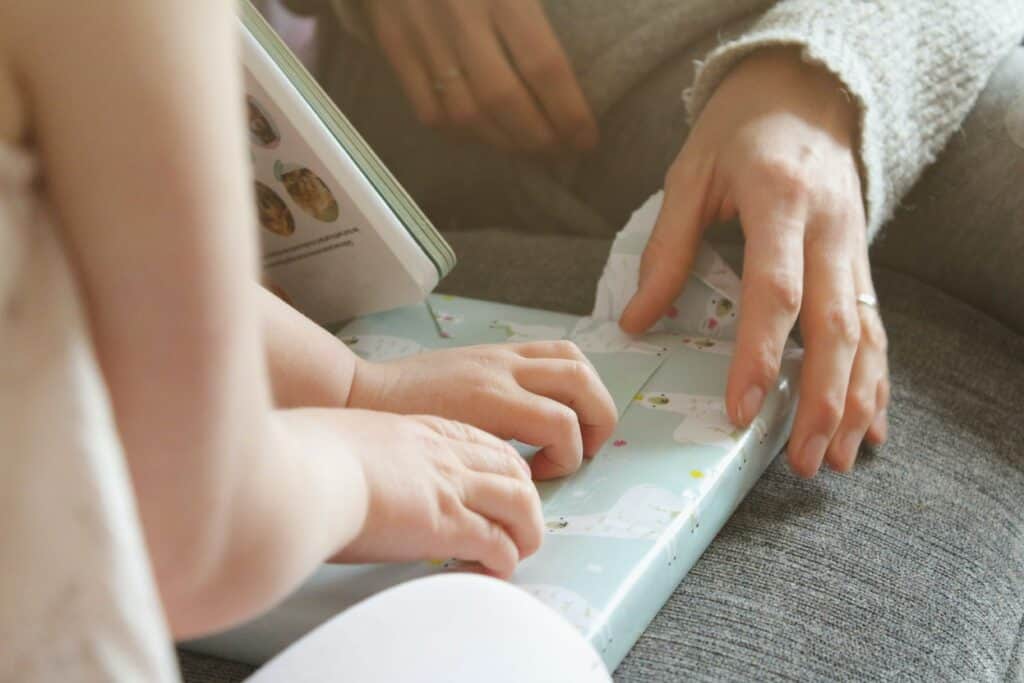You’ve been programmed to believe that more is better. You’re told that you must buy the newest iPhone, have the most Instagram followers, and live in the biggest house in the nicest neighbourhood.
And for what? Keeping up with the Joneses? To impress your friends, family, and everyone who has ever doubted you?
Striving for more to dazzle others may give your ego a temporary boost but won’t ultimately make you feel content. It usually has the opposite effect. When you’re constantly chasing the next milestone, you fail to appreciate what you have.
You miss out on beauty, no, the miracle of everyday moments, and you end up feeling anxious and stressed.
Not only that, but wanting and having more adds complexity to your life. You have more responsibilities and decisions, which takes an emotional toll.
So how can you break free from this cycle? How can you develop a minimalist mindset? Below are 7 principles to help you shift the way you think about desiring more.
1. Question your assumptions
In a capitalistic society, happiness is defined by more. More things, sure. But this extends to everything. Our appetites are getting larger as we want to overconsume in every area of our lives.
This is a societal infrastructure driven by consumerism and materialism. It’s a hold that’s incredibly hard to break. And it starts with challenging the status quo of “more”.
The first step to developing a minimalist mindset is to unplug from this consumerist cycle and see it for what it is. This perspective will send your mind for a loop. You’ll question consumption.
Why do we use so much water? Waste so much food. Has gift-giving gone too far? Why do we make houses so big? How did we get here?
It’s a lot to process, and it can be overwhelming. So take it one step at a time.
Start with your assumptions around work, productivity, and success. Why do you believe that working more hours will make you happier? Is there another way to measure success?
Next time you’re about to make a purchase, ask yourself: do I need this? Will this add value to my life? Is there a more straightforward way to do this?
You don’t have to go full minimalist right away. But by questioning your assumptions, you start to see that there is more than one way to live.
2. Relentlessly pursue the feeling of gratitude
Your endless desire for more usually comes from the need to fill a void. For instance, when I’m stressed, I throw myself into work as a distraction. Others find comfort in shopping or overeating (I’ve also been there).
When you’re feeling empty or unhappy, gratitude is nowhere to be seen.
You hear it all the time…
You have to be grateful. You only have one life. Every breath is a gift.
You can intellectualise and learn about these principles all you want, but your mindset won’t shift until you put them into practice. Make gratitude part of your behaviour.
The thing about gratitude is that we constantly forget about it. It’s why Buddhist monks ring the bell throughout each day as a reminder to be present.

It’s not necessarily about being grateful for the significant moments in your life, like getting a promotion or going on vacation. It’s about being thankful for the little things, like having a bed to sleep in or clean water to drink.
Gratitude is a muscle that needs to be exercised. The more you do it, the easier it becomes. And soon enough, it’ll become second nature.
A minimalist mindset is one of gratitude because you don’t want more when you’re grateful for what you have.
Suggested Read => What is Minimalist Clothing Style?
You probably don’t have time to meditate 5 hours a day. So create daily prompts to practice gratitude. This could be a short meditation, prayer, journaling, or going for a silent walk in nature.
Whatever works for you, make sure it’s something that will become part of your routine. And be relentless about it. If there’s one thing to not be a minimalist about, it’s gratitude. We can’t get enough of it.
It won’t happen overnight, but if you’re consistent, your mindset will start to shift. You’ll find yourself wanting less and appreciating more.
3. Declutter your life
It’s tough to develop a minimalist mindset when you’re drowning and things and commitments. By decluttering your physical space, you’re also decluttering your mental space.
Start with the easy stuff and work your way up. Get rid of clothes you don’t wear, books you haven’t read, and knick-knacks that hold no sentimental value.
Read more: Decluttering Checklist For Minimalists (Over 100 Ideas + Free PDF)
The goal is to create more breathing room in your life. Less stuff means less worry and more time and energy to focus on what’s important.
Some people recommend decluttering for 15 minutes a day. Others do it in one fell swoop. It doesn’t matter how you do it, as long as you get it done.
When you have fewer things, you start to see them as valuable. You take better care of them and are more selective about what you bring into your life.
After you’ve decluttered your space, what’s left reflects your values. And when your physical environment aligns with your values, it’s much easier to live a minimalist lifestyle.
4. Slow down
When was the last time you lost track of time? Or were you so engrossed in an activity that the rest of the world faded away?
Perhaps you embody the identity of a doer. You’re always hustling, grinding, and chasing after your next goal. But what happens when you finally reach it?
You celebrate for a day (likely 5 minutes), and then it’s back to the grind. You’re always chasing after something and never take the time just to be.
Slowing down is essential for developing a minimalist mindset. It allows you to appreciate the present moment.
It might sound counterintuitive, but slowing down is one of the best ways to be productive. You’re more likely to make mistakes and burn out when you’re always on the go.
When you take the time to slow down, you can focus on what’s important and get rid of anything that’s holding you back.
I get it. Life is hectic, and you’re doing your best. But I challenge you to have at least one slow day a week, like pottering around the house at a snail’s pace, slow. Nothing is scheduled, and it leaves things open for spontaneity. See where it takes you.
5. Replace comparison with appreciation
Comparing yourself with others guarantees your unhappiness. However, comparing yourself with yourself also has challenges.
It’s tempting to get caught up in the idea that you should be further along than you are. That you’re not doing enough, or that you’re not good enough. Ironically, this even applies to minimalism. You think, “I’m not minimalist enough.”
Comparison steals your joy and creates feelings of inadequacy. It’s a never-ending cycle of unhappiness, and it’s hard to break free.
The solution is to focus on appreciation. Instead of comparing yourself to others or even to your past self, appreciate all you are and all you’ve accomplished.
Take a step back and look at your life with gratitude (back to point #2). Be proud of how far you’ve come and the person you’ve become.
And when you start to appreciate yourself, it’s much easier to appreciate others. You see them for who they are instead of comparing them to you.
So, whenever you sense the feeling of comparison, immediately replace it with what you can appreciate about that person or situation.
For example, if you’re trying to beat your running time, and don’t hit your goal today, instead of getting down on yourself, celebrate your efforts to show up and learn from the experience.
It’s a simple shift, but it makes a world of difference.

6. Add things and experiences to your life that light you up
It may seem paradoxical that I’m talking about adding items when cultivating a minimalist mindset. But by using minimalism, you can invest more in what you want in life.
This could lead to monumental changes, like downsizing your home, ending your marriage, or changing your career. It could also be minor, like adding a plant to your home or exploring a new hobby.
The key is to focus on things that light you up. Things that energise you, not de-energise you.
If you’re not careful, you’ll get complacent. Minimalism gives you the power and tools to hit the reset button on life, so you can design it the way you want.
Read more: Design For White Space In Your Life
It’s not necessarily about getting rid of everything you have and starting from scratch—although sometimes that’s required.
So ask yourself, what lights you up? Really lights you up? What are you prepared to let go of to make it happen?
7. Remember, it’s just stuff
In the grand scheme of things, your stuff doesn’t matter. It’s sometimes hard to believe. When you’re attached to your items—it becomes part of who you are. But you are not your thing.
I always like to do the deathbed test. Let’s get dark for a moment.
Say you have 24 hours left to live, and you’re reflecting on your life. What will you remember?
Every item in your home? Probably not.
You’ll remember the people you loved and who loved you. The experiences you had. The moments that mattered.
So if your stuff doesn’t matter, why do we place so much importance on it? We’re told we need the stuff to be happy.
But here’s the truth: you don’t need any of it.
You can live a rich, full life with minimal belongings. When you have less, you appreciate what you do have more.
Minimalist mindset: final thoughts
Developing a minimalist mindset is more than just getting rid of your stuff. It’s a way of thinking that can help enrich your life.
You can create more space for curiosity, laughter, and love by decluttering your mind. So what are you waiting for?






What a great lesson you have provided here. I’m on a minimalist journey, and material things are just a part of it. It’s a whole lifestyle shift. I am minimizing toxic relationship and replacing them with (fewer) healthier ones. I have found the right partner (after divorcing the wrong one), and have shed overbearing belief systems (including religion). I’m rejecting harm to animals and have become Vegan (for the animals, environment and my health). I practice meditation to achieve mindfulness. And am working to Slow Down and be more grateful. And forgiving myself. This is all minimizing… more than just removing stuff. Thanks again for the great information and help on my journey to self actualization. Cheers!
Minimalism concept keeps my mind at ease. I feel calm and relaxed when there are not a lot of disturbing things around me. If so – I kinda start to feel paranoid, my mind is whirred on and I can not focus on the things I got to do. Trying to slow down and think thoroughly help me to get me back on track. So good to not have my mind overstimulated by things. I try to appreciate every thing around me, and not make it to the comparison to others – which version of IPhone I have, who wears what and etc.
Your post is a good guide, thank you for this and have a good day!
Pretty! This has been a really wonderful post. Many thanks for providing these details.
Thank you for sharing these helpful principles for developing a minimalist mindset. It’s so easy to get caught up in the societal pressure to constantly strive for more, and it’s refreshing to be reminded of the importance of gratitude and simplicity. Your suggestions for practicing gratitude and decluttering, both physically and mentally, are especially useful. I will definitely try to incorporate these into my own life. Thank you for the thought-provoking and insightful post.
Thank your article the Minimalit Vegan, you are right being a minimalist isn’t about deprivation :
– You can still have fun and find ways to enjoy life. You can still pursue your passions and live a rewarding life –
You can still afford to spoil yourself from time to time
-You can even go on a shopping spree occasionally.
The point is, you want your values to align with what you’re working towards so that it feels right, not something that you’re trying to force onto yourself because you feel deprived of it all the other 364 days of the year. Minimalism shouldn’t be treated as a sacrifice; on the contrary, it should fulfill you, motivate and inspire you to pursue healthy habits, and help you prioritize what matters most in this short amount of time called life.
Moreover, sometimes the best things in life are free, or at least inexpensive. You don’t need a $10 cup of coffee to be happy. You don’t need a big house in the ‘right neighbourhood’ to have friends. And you don’t need to keep up with the neighbours to be satisfied with your life. There are hundreds of more affordable ways to find fulfillment, self-expression and happiness.
Life doesn’t have to be complicated and expensive to be amazing—and if you do it right, it can even be simpler!
Thank you for this perfect reminder. These steps can quickly make us feel so much more fulfilled. I still can’t believe how little effort makes a big difference.
Agree with everything, except that keeping your tech updated is how you will be able to use the technology safely and at a speed that suits a minimalist life-style, especially if you have digitised everything and plan on streaming those movies. Technology changes quickly and has inbuilt obsolescence but you certainly don’t need to upgrade every year just to have the latest I agree. I upgrade my phone every 5 years right when it starts to slow down and have issues.
Great post! As a Vietnam veteran I am grateful for each day but it never hurts to be reminded with great posts like yours. Keep up the good work.
Thanks, Dex!